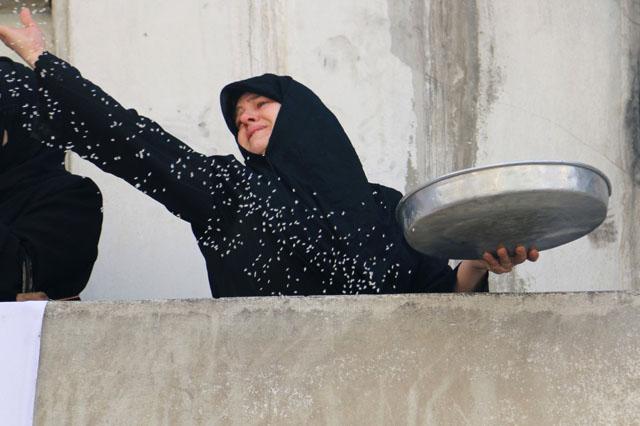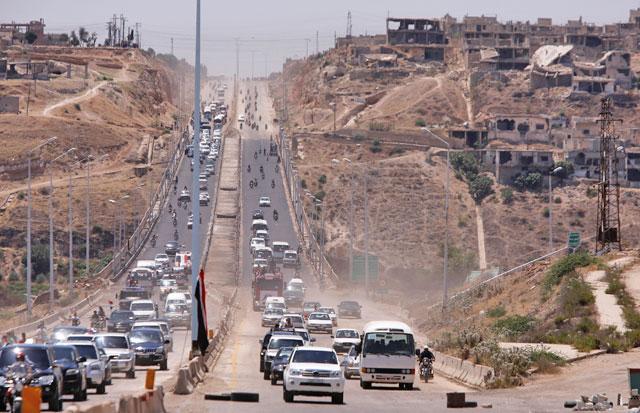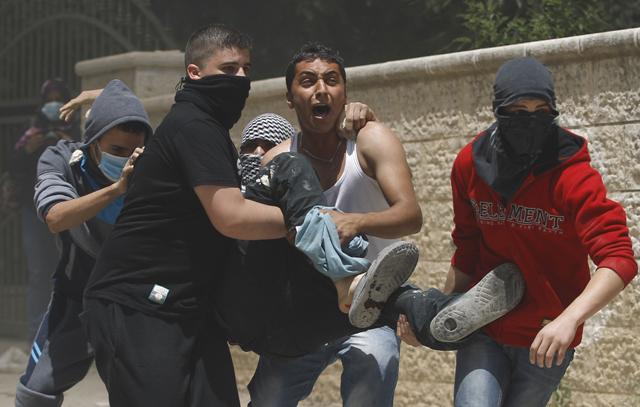You are here
Assad preparing to run for president despite war
By AP - Mar 29,2014 - Last updated at Mar 29,2014

BEIRUT — Syrian President Bashar Assad is quietly preparing the ground to hold elections by early this summer to win another seven-year term, even as the Syrian conflict rampages into its fourth year with large parts of the country either in ruins or under opposition control and nearly a third of the population scattered by civil war.
Amid the destruction, which has left more than 140,000 dead, presidential elections may seem impossible. But Syrian officials insist they will be held on time.
The election is central to the Syrian government’s depiction of the conflict on the international stage. At failed peace negotiations earlier this year in Geneva, Syrian officials categorically ruled out that Assad would step down in the face of the rebel uprising aimed at ousting him. Instead, they present the elections due at the end of Assad’s term as the solution to the crisis: If the people choose Assad in the election, the fight should end; if Assad loses, then he will leave.
Observers say it would be preposterous to think a vote could reflect a real choice, and that Assad is certain to win. It would be impossible to hold polls in areas controlled by rebels. In areas under government control, many would not dare vote for anyone but Assad for fear of secret police who have kept a close eye on past elections.
“There is a gap between what goes on the mind of the Syrian president and reality. He has a fixation on the presidency and he doesn’t see beyond it,” said Hilal Khashan, a political science professor at the American University of Beirut.
“He can hold elections, and if the international community were to take these elections seriously then there is something really wrong in the international community,” he said.
In government held areas, pro-Assad demonstrators have recently begun holding rallies in support of the armed forces, carrying Assad posters, Syrian flags and banners lauding “victories against terrorists”, the term that the government uses to refer to rebels.
Assad and his British-born wife, Asma, have emerged from months of seclusion, visiting with school students, mothers and displaced people students in a campaign aimed at infusing confidence and optimism into the war-wrecked nation.
As the fighting on the ground shifts, there is no telling how the battlefield will look by the summer. But for now, Assad has overall good reason to feel self-assured.
Backed by Shiite fighters from the Lebanese group Hizbollah and Iraqi militias, Syrian troops have seized areas around Damascus and the central province of Homs that links the capital with Assad’s stronghold on the Mediterranean coast. Earlier this month, government forces recaptured two key rebel-held towns near the border with Lebanon. Troops also regained areas outside the city of Aleppo and secured its international airport, where flights resumed after a 15-month halt.
Underscoring the see-sawing conflict, rebels last week launched a major offensive in Assad’s ancestral homeland in the coastal province of Latakia, capturing the last border crossing point with Turkey that was still under government control and several towns. A second cousin of Assad, Hilal Assad, was killed in the fighting. But it is still unclear how much it represents a shift.
“This has been a great year for Assad,” said Fawaz A. Gerges, director of the Middle East Centre at the London School of Economics.
“His army has become an effective killing machine that has made major tactical gains all over Syria, controlling Syria’s cities and border area with Lebanon that is essential to his survival,” Gerges said.
No date has been set yet for the vote, which must be held between 60 and 90 days before Assad’s 7-year term ends on July 17. This month, the Syrian parliament approved an electoral law opening the door — at least in theory — to potential contenders besides Assad.
It states that any candidate must have lived in Syria for the past 10 years and cannot have any other citizenship, apparently to prevent opposition figures in exile from running.
So far, no one has come forward to run against Assad.
Syria’s Ambassador to the UN Bashar Ja’afari said in mid-March that a presidential election will be held in May or June, and called it “an internal affair”. Presidential adviser Bouthaina Shaaban said presidential elections would be held on time according to the constitution. She said Syria would not accept international monitors for the vote.
Preparations are under way. Authorities in government held areas have started issuing election cards and taking applications from people who lost or don’t have identity cards.
Assad’s wife, Asma, has reappeared in several carefully scripted public appearances recently.
In January, state TV and Syria’s official SANA news agency splashed images of the first lady’s visit to a Damascus school, where she greeted children who had lost their fathers fighting on the government side. Dressed in a gray jacket, her hair casually pulled up, she looked at children’s drawings surrounded by smiling students in blue school uniforms.
More recently, Asma and her husband sat with a group of a dozen teachers in Damascus. On March 21 — Mothers’ Day in the Arab world — state TV showed Asma meeting mothers of missing soldiers.
“Your sons are our sons,” she told them softly. “They are the sons of Syria. Syria will not rest until all of its children are found.”
The new constitution approved in a referendum in February 2012 allows for a multiparty system in Syria, which has been ruled by Assad’s Baath Party since a 1963 coup. Hafez Assad took power in another coup in 1970. His son Bashar succeeded Hafez after his death in 2000.
The constitution sets a limit of two 7-year terms for the president — starting the count from the passage of the constitution, meaning Assad could run again in 2021 and remain legally in power through 2028.
Until now, Bashar Assad has been elected by referendums in which he was the only candidate and voters cast yes-or-no ballots. Each time, he won with more than 90 per cent of the vote.
“We are seeing preparations for the elections but for us the results are known,” said a prominent Syrian opposition activist in the central city of Homs, Mohammed Saleh. “Of course, there will be other candidates for decoration only.”
The thought of elections in the current situation has enraged the opposition.
“It is impossible.... In order to hold elections there should be free parties, elections campaigns, stability, peace and when people can go vote without pressure,” said opposition figure Kamal Labwani, who spent long years in jail in Syria before he left the country.
Ahamad Al Masalmeh, an opposition activist in the southern city of Daraa where the uprising began in March 2011, said even areas under government control are too dangerous to hold a vote.
“This is an illegitimate regime that should not hold elections,” he said. “Assad for me is history and he has no place in the new Syria.”
Related Articles
BEIRUT — The Syrian government re-opened the highway between the cities of Homs and Hama on Wednesday a month after its forces retook a rebe
TEHRAN/ MUSCAT — Iran has named an ambassador to Saudi Arabia, state media reported on Wednesday, sealing a thaw in relations more tha
Rivals Hamas and Fateh are moving towards a unity government as early as next week, in what seems to be their most promising attempt yet to heal a seven-year split that weakened the case for Palestinian statehood.


















